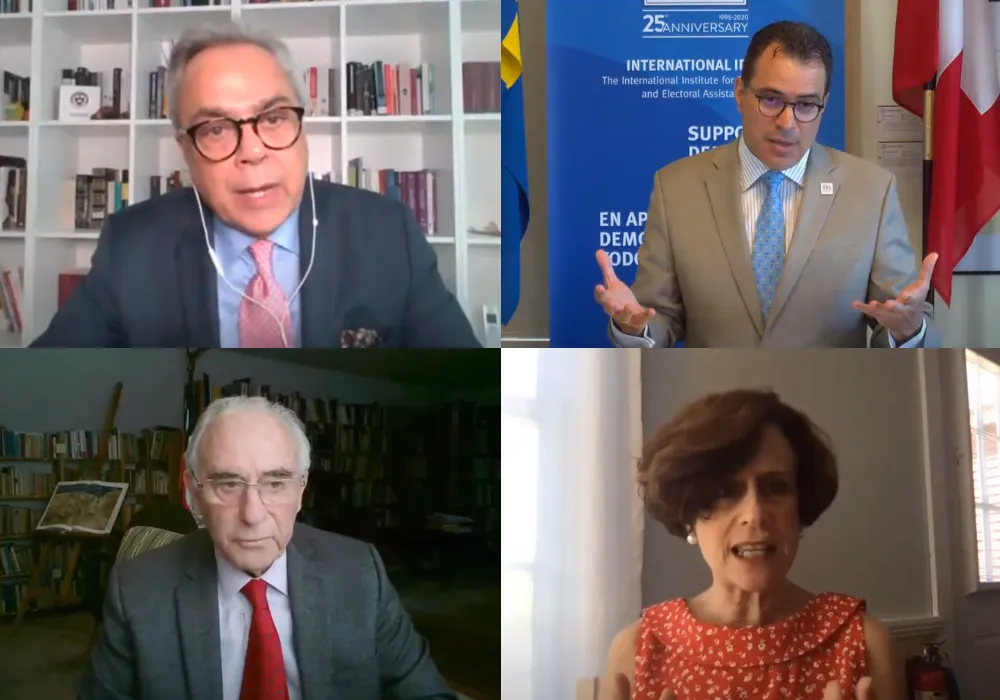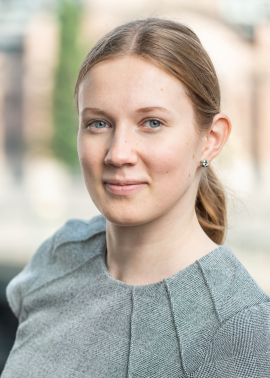What’s happening to democracy in Latin America?

International IDEA hosted a webinar on 16 June 2021 entitled: “What’s happening to democracy in Latin America?” as part of its new #DebatingDemocracy Webinar Series.
Este artículo está disponible en español.
The discussion focused on the political situation in Latin America and around 200 viewers tuned in live to hear the conversation between Sergio Bitar, former Minister and Senator from Chile and Member of International IDEA’s Board of Advisers, Dr Kevin Casas-Zamora, International IDEA’s Secretary-General and Dr Denise Dresser, Professor of Political Science at the Instituto Tecnológico Autónomo de México. The speakers shed light on Latin America’s challenging political situation drawing on their first-hand experiences and long-standing knowledge of the continent. The discussion was moderated by Dr Daniel Zovatto, International IDEA’s Director for Latin America and the Caribbean.
The panellists addressed some of the most pressing issues affecting democracy in the region. Sergio Bitar underlined that despite the weakening of democracy caused by the pandemic, democracy was a robust part of Latin American culture. He emphasized the importance of fulfilling the socio-economic rights along with political rights in the attempt to mitigate the detrimental conflict between the elite and the people and thereby sustain democracy. Dr Denise Dresser brought up the growing concerns regarding Mexico’s democratic erosion in recent years, touching upon phenomena such as increased polarization and the new powers gained by the country’s military. She asserted that while the recent election in June proved the vibrancy of Mexico’s electoral democracy, it is important to remain vigilant and observe signs of democratic dismantling.
In his remarks, Dr Kevin Casas-Zamora put forth that democracy in Latin America can be understood both as individual stories of countries as well as a larger narrative about the region’s democratic strengths and weaknesses. According to Casas-Zamora, the continent’s ability to hold free and fair elections can be seen as a major strength, while the weaknesses include aspects that go beyond these electoral capabilities such as the quality of the rule of law. He also explored matters such as problems in institutional design, the gulf between the elite and the youth as well as the corrosive effects of corruption, inequality and privilege. He underscored that progress is required in these areas going forward and called attention to the need to rethink democracy in the region.
The recording of the webinar is available on International IDEA's YouTube channel.




